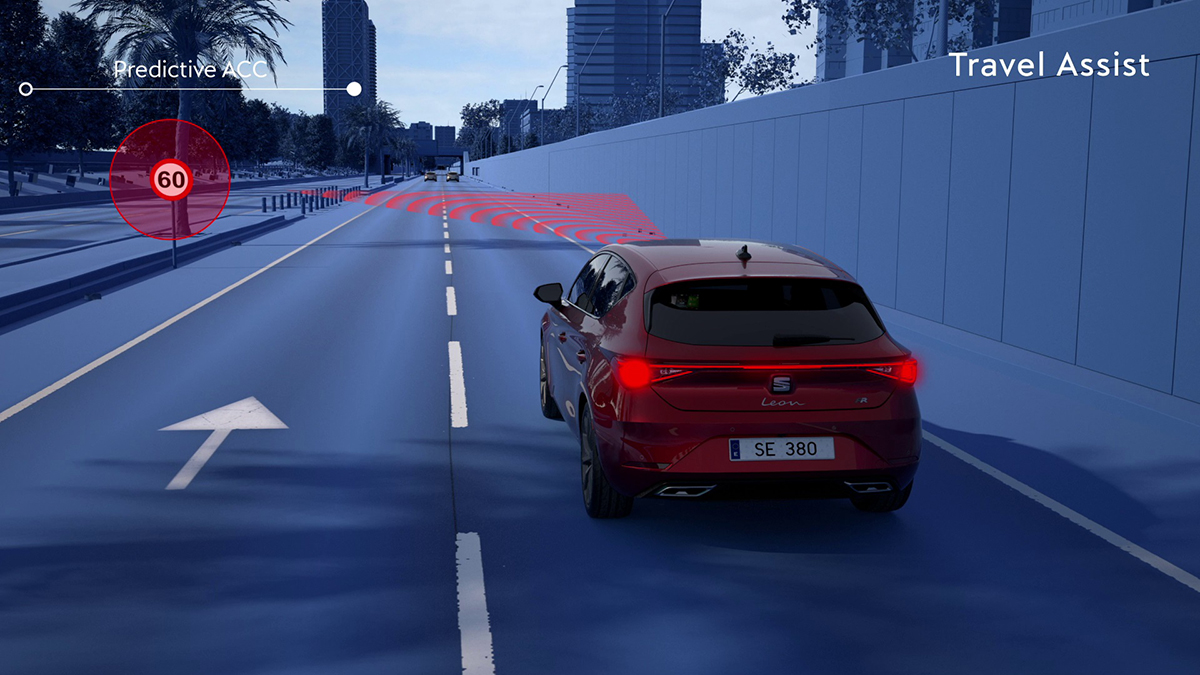The fourth generation of the SEAT Leon is the safest vehicle the brand has ever developed, thanks not only to its level of passive safety, but also, in particular, to the integration of a state-of-the-art suite of advanced driver assistance systems (ADAS).
The aim is not only to protect passengers in case of an accident, but also to prevent accidents from occurring. That is why these systems are always alert and monitor the car’s environment with images and data gathered by a camera, as well as ultrasonic and radar sensors. Thanks to it, the new SEAT Leon can react when facing obstacles on the road or sudden movements of other drivers, and provide effective driver assistance when necessary, alerting drivers to a dangerous situation or minimising the risk or consequences of an accident.
Advanced driver assistance systems (ADAS), which represent the first step towards autonomous driving, not only provide a significant increase in active safety: they also improve driving quality and comfort in daily traffic situations. These systems assist the driver via light and acoustic signals, as well as vibration through the steering wheel, depending on the assistant. The vehicle is also capable of avoiding or minimising a dangerous situation by corrections in the steering wheel and autonomous braking, even without human intervention.
ADAS include, for example, predictive Adaptive Cruise Control (ACC), Emergency Assist, Travel Assist and Side and Exit Assist, which combine to protect the vehicle and its occupants when driving or stationary.
Predictive Adaptive Cruise Control (ACC)
Until now, the ACC system adapted the speed to the vehicles circulating in front of you, thanks to the front radar. In the all-new SEAT Leon, this system adds a predictive element to the vehicle, allowing the cruising speed set by the driver to be adapted depending on the route selected in the navigation system and taking into consideration bends, roundabouts, junctions, speed limits or built-up areas. In addition, through the multifunctional front camera and traffic sign detection, it can adjust the vehicle’s speed when limits change.
Exit Warning
Another addition to the safety suite of the new SEAT Leon. When stationary, the rear radar continues to monitor the environment. If a vehicle is approaching from behind when an occupant opens a door and there is a risk of accident, the new Leon emits an audible and visual warning via the interior LED lighting on the front doors and dashboard. This system works on both sides, thus preventing risks with other vehicles, including motorbikes and bicycles, whose approach is usually less noticeable.
Emergency Assist
If the vehicle’s sensors detect that the driver does not have at least one hand on the steering wheel or that they let it go for more than 15 seconds, they will receive acoustic and visual warnings, and if they do not respond, the vehicle will automatically brake gradually. If the driver continues to fail to respond, the Emergency Assist will take the decision to bring the all-new SEAT Leon to a complete stop, activating the hazard lights and initiating an emergency call via the eCall system.
📖 Lire aussi :
Renault, Dacia et Alpine débarquent à l’AutoXpérience Genève avec 19 voitures et 10 essais
Front Assist city emergency braking, with pedestrian and cyclist detection
This system warns the driver via a visual and acoustic warning when it detects a risk of collision with the front vehicle, or with a cyclist or pedestrian. If the driver does not react, the system brakes automatically to prevent the accident or lessen its consequences.
Lane Assist
It supervises the position of the vehicle within the lane and alerts the driver when the vehicle approaches or goes over the lane’s lines if the driver has not activated one of the indicators. This system also intervenes in the steering, applying a small amount of torque to help keep the vehicle in its lane on the road, although the driver remains in complete control of the steering at all times. The sensitivity of the system’s functionality can be customized in advance by the driver.
Traffic Sign Recognition with Speed limit detection
It detects different speed limit signs thanks to a front camera that processes images of the road, displays them on the instrument cluster and transmits this information to other related systems. This information prevails over any information that may be stored, for example, in the navigation system.
Side Assist
It detects vehicles approaching from behind in adjacent lanes and alerts the driver to their presence through a visual signal via the interior LED ambient lighting. If the driver activates the indicator to change lane, while the system warns of the presence of a vehicle, it will immediately emit an intermittent warning to warn of the danger of this manoeuvre. It is a very useful system for changing lanes safely, especially when vehicles with smaller front surface areas approach, such as motorbikes.
Exit Assist
In certain situations where the driver does not have sufficient visibility, such as when reversing out of a parking space with vehicles on both sides, the rear radar detects approaching vehicles and alerts the driver to their presence and even braking if the driver does not react.
Travel assist
The semi-autonomous driving function will be implemented in the near future with the introduction of the Travel Assist system. This system will use the ACC and Lane Assist information to keep the vehicle in the centre of the lane and adjust the speed to the traffic. It can therefore offer assisted driving at speeds of up to 210 km/h.
Travel assist
The semi-autonomous driving function will be implemented in the near future with the introduction of the Travel Assist system. This system will use the ACC and Lane Assist information to keep the vehicle in the centre of the lane and adjust the speed to the traffic. It can therefore offer assisted driving at speeds of up to 210 km/h.
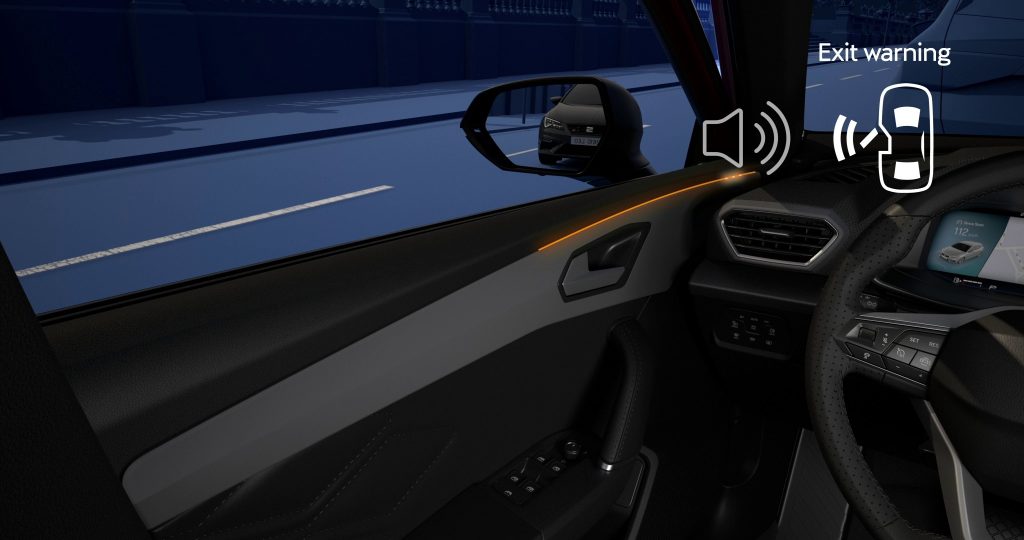
Seat Leon 2020 – Exit-Warning_HQ 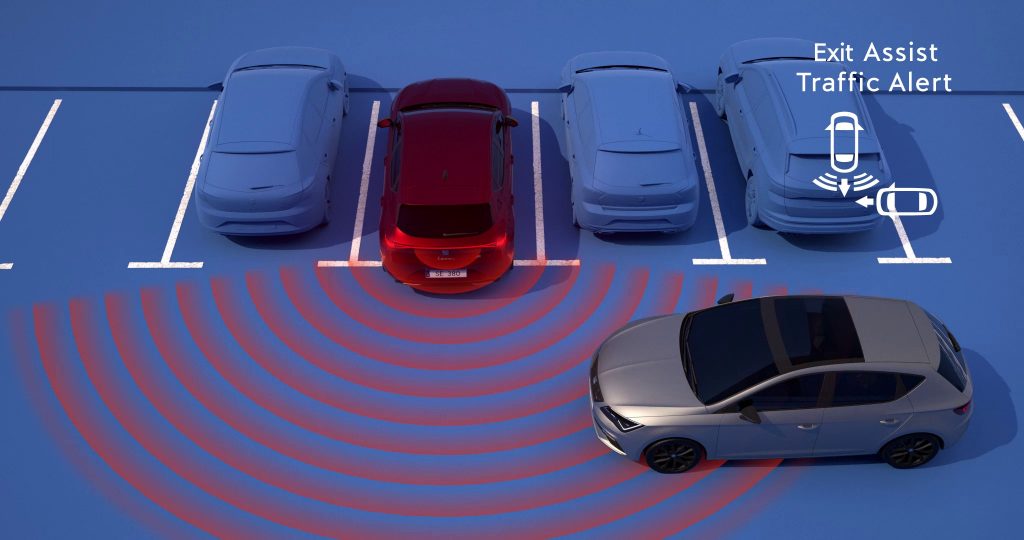
Seat Leon 2020 – Precomp-Exit-Assist_HQ 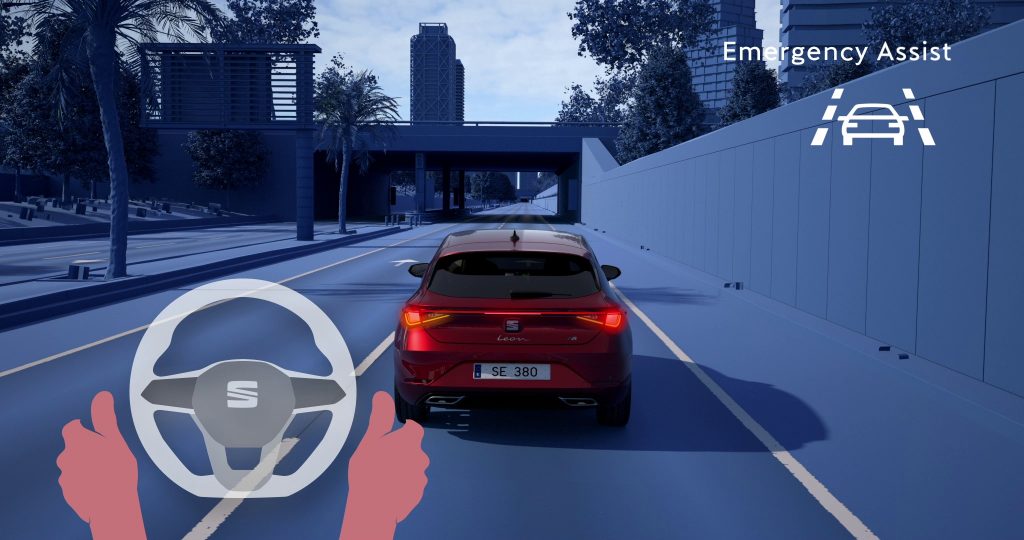
Seat Leon 2020 – Emergency-Assist_HQ 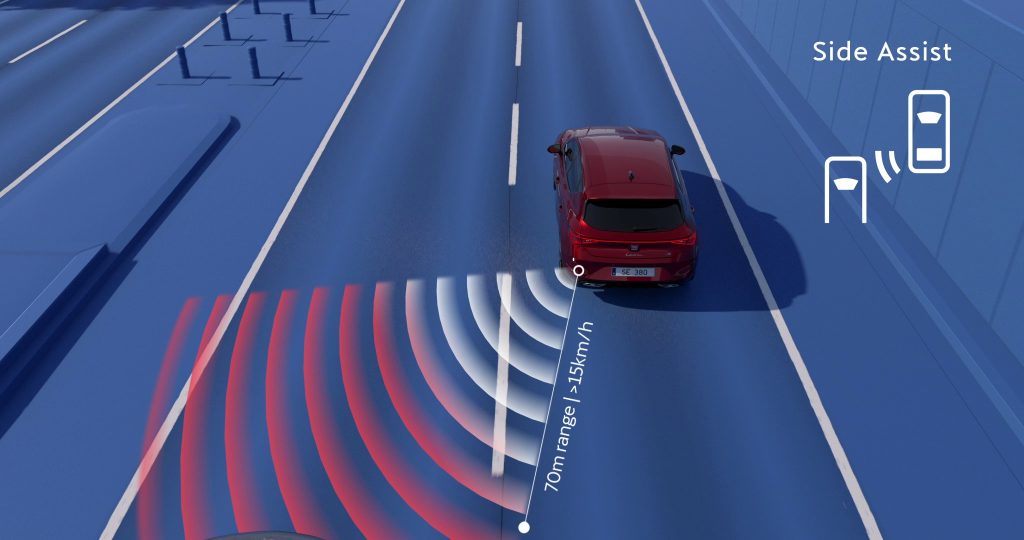
Seat Leon 2020 – Side-Assist_HQ

